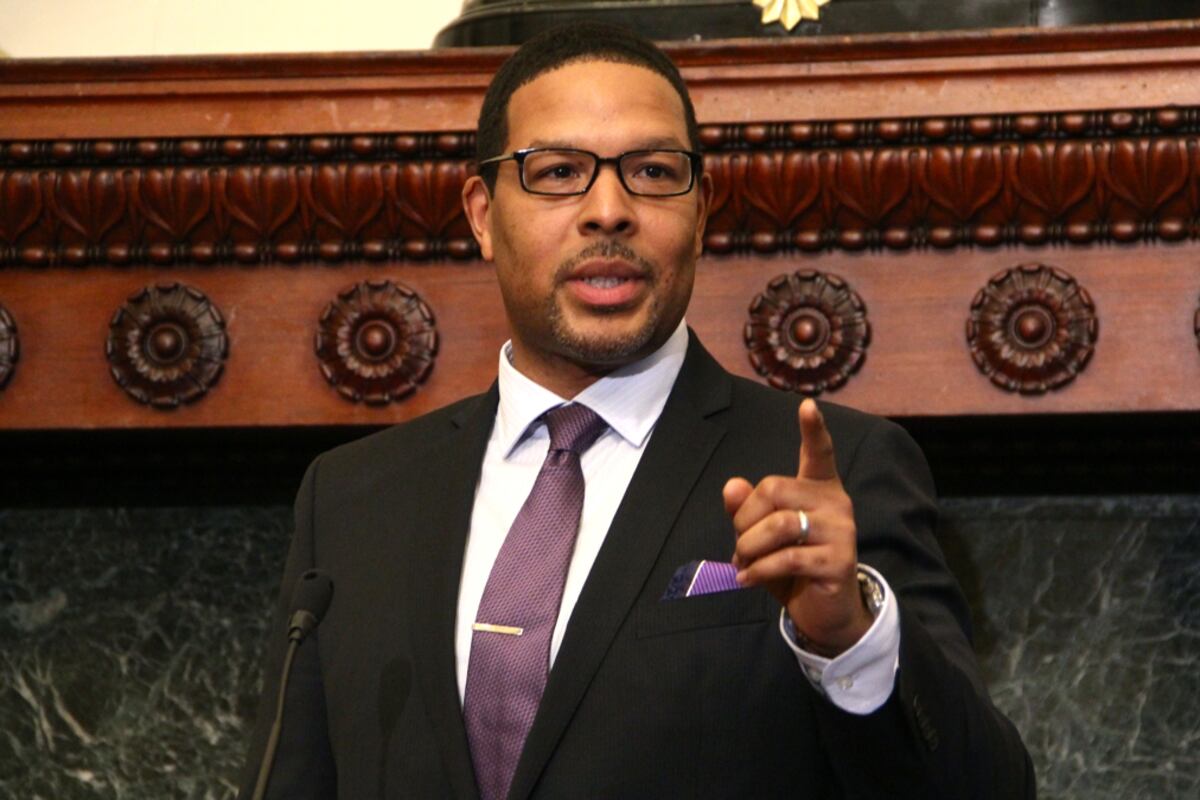Philadelphia’s Chief Education Officer will leave his position at Mayor Jim Kenney’s office at the end of this month to become the new head of the I Have A Dream Foundation, Kenney’s office confirmed Wednesday.
Otis Hackney, who has led the mayoral office of education since 2015, helped launch the city’s PHLpreK program in 2017 for three- and four-year-olds, and also helped start PHLConnectED, which offers free Internet services for students’ families.
The former principal of South Philadelphia High School is scheduled to start his new position Nov. 7 leading the foundation in New York City. It offers mentoring and support to students whose families are struggling with poverty and helps get them to college.
One of Hackney’s biggest tasks came five years ago, when he assisted the mayor in returning public schools to local control under Philadelphia’s Board of Education. Hackney has supported the school board’s strategic plan unveiled in late 2020, and backs the mayoral appointment of board members rather than having them elected.
“I think this group has managed and weathered numerous storms. They are a very independent group, we do not overstep with them,” Hackney said in an interview with Chalkbeat, referring to the city school board’s members. “But we do make sure that in terms of the choices that the mayor is able to make, that these folks are individuals ready to serve, and work with the other members of the board.”
Meanwhile, the PHLpre-K program now serves 4,500 students, which is short of Kenney’s initial pledge that it would serve 6,500 students a year when the mayor first proposed a soda tax to help pay for the program (Philadelphia approved the tax in 2016).
“In the initial launch our numbers were very good, but we did have a pandemic that impacted probably two years of growth for that program,” Hackney said.
Since its inception, the PHLConnectEd initiative has made over 21,000 connections, according to Hackney. A connection, he said, could be one household that receives internet, or it could be one student that received an internet hotspot. “We’re just really excited about us being able to serve that many families in the city,” he said.
Kenney said in a statement noting Hackney’s departure that he “stepped up to the challenge of realizing our ambitious education platform.”
Hackney was once considered a possible successor to former Philadelphia Superintendent William Hite; the job eventually went to Tony Watlington earlier this year. Hackney, who noted that he was part of the search committee that looked for Hite’s replacement, said he has no plans to become superintendent.
Bureau Chief Johann Calhoun covers K-12 schools and early childhood education in Philadelphia. He oversees Chalkbeat Philadelphia’s education coverage. Contact Johann at jcalhoun@chalkbeat.org.





